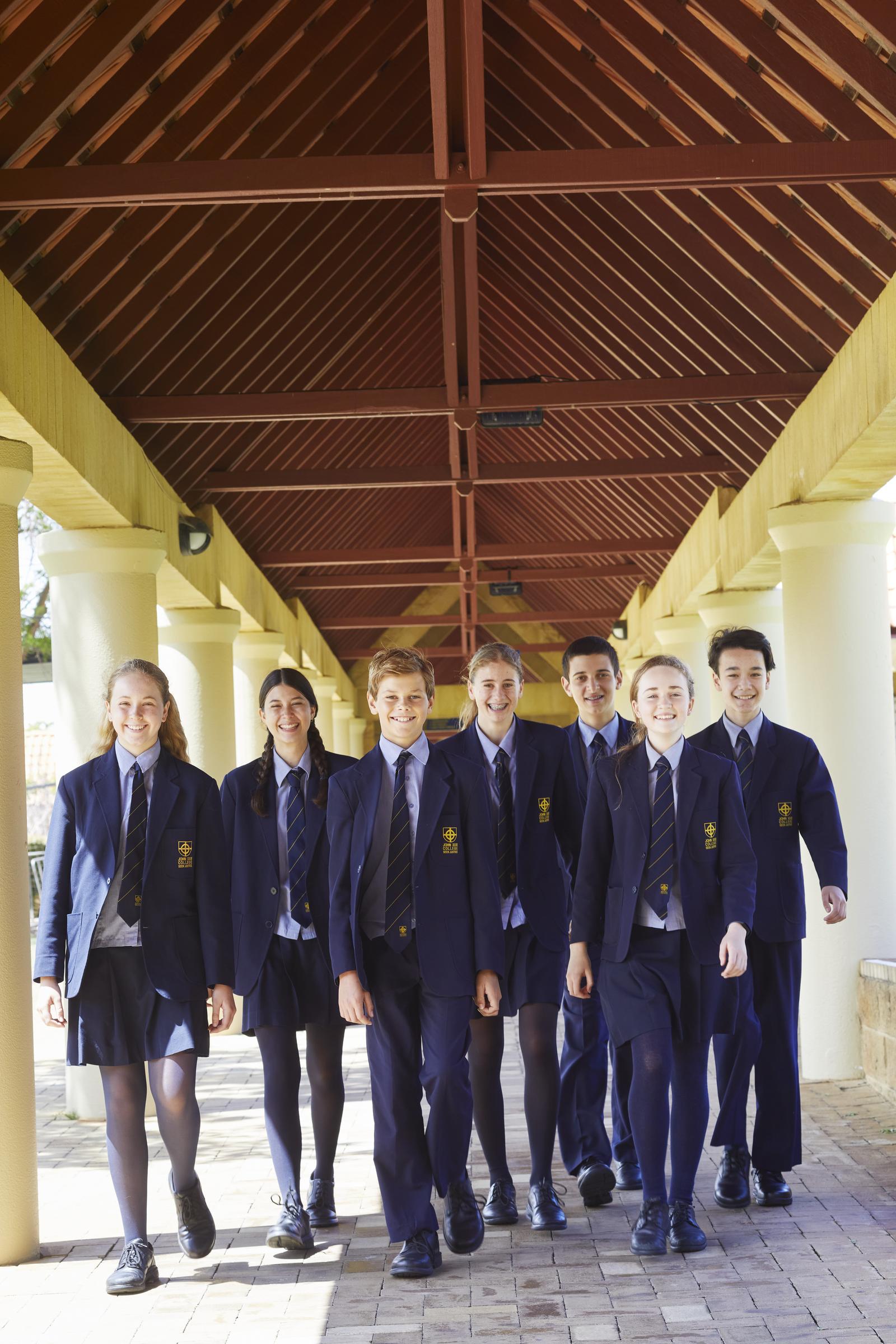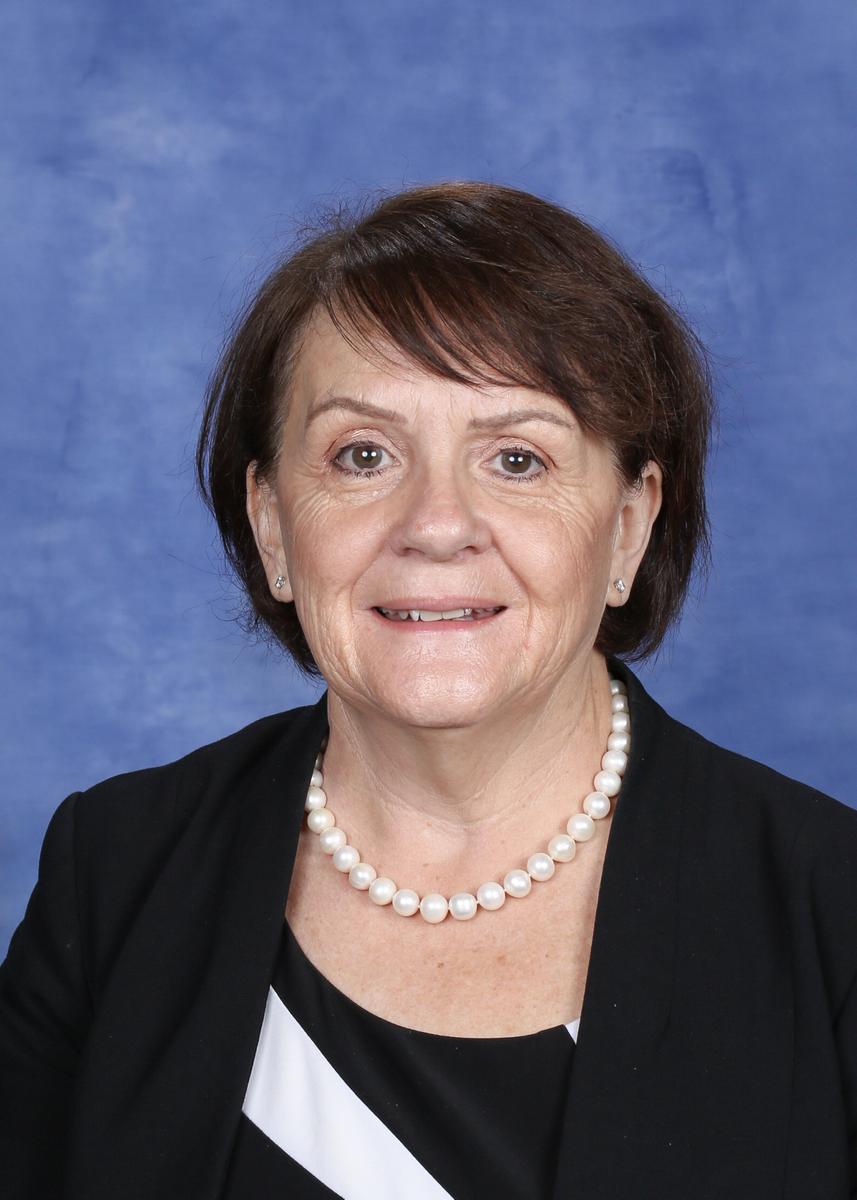From the Principal

It is such a wonderful experience to wander around the College grounds during recess and lunch and experience the day-to-day life of the College. A highlight of this week was to see the older students supporting the primary students in their lunch-time cricket – a terrific mixing of the year groups and a testament to the benefits of the PreK to Year 12 nature of our College!
Cura Personalis, the care of the individual, is a key value in Ignatian education. It follows that an ongoing focus is to provide a genuinely caring environment to ensure the emotional wellbeing of each student. After considerable research, analysis of data and reflection about our College context, a Secondary Wellbeing Program was introduced in 2021. (Details of the Primary Program are included later in this article.) The new program offers sequential year-based programs that nurture and develop students’ spiritual, religious, cognitive, physical, emotional and social development. In Secondary, each Thursday now has an additional period that is either devoted to assemblies or activities focusing on topics such as wellbeing, resilience, respectful relationships, anti-bullying, and cyber safety. The Secondary section of last week’s College Newsletter included reports on two of the first activities for the year: Year 10 students had a presentation on managing social media and Year 12 on driver safety.
The Wellbeing Program has been developed as a cross-curricular initiative in addition to the Health and Religious Education curricula. The Teen Mental Health First Aid Course that Year 8 students will undertake gives a sense of the type of opportunities the Program allows. Over the course of the year, Year 8 students will cover the following areas of mental health: suicidal thoughts and behaviours, non-suicidal self-injury, being intoxicated from alcohol and other drugs and bullying or abuse. Similar developmentally appropriate programs are presented to the other students. Details of the Wellbeing Program for each year level will be provided to parents by the Assistant Deputy Principals; and parents who attended the sessions conducted by the Assistant Deputy Principals at last night’s Parent Information Night were provided with an overview of the program.
The collection and analysis of data continuously informs the nature of the Wellbeing Program. One instrument that has been used to collect this data is the Assessing Wellbeing in Education (AWE) Survey, which was administered to 604 secondary students (162 Year 7 students and 442 Years 8-12 students) last year. In Year 7, the survey provides information on categories of Belonging, Peer Relationships, Competence, Bullying, Sadness and Anxiety. For our students, the ‘Belonging’ score was very positive, while the ‘Sadness’ score was a little below average. The Years 8 to12 survey addresses categories of Problem Solving, Supportive Relationships, Teachers’ Care, Belonging, Appearance, Bullying, Sadness and Sickness. The most positive result for our cohort was in ‘Bullying’, where the College scored lower than average in comparison to other AWE schools. The students’ score on Appearance (I feel good about my appearance) provides an opportunity to sharpen our focus in supporting students to improve their body confidence. This is a broader societal experience as evidenced by the campaign of our current Australian of the Year, Taryn Brumfitt (who leads the Body Image Movement, an organisation teaching people to appreciate their bodies). The survey will be administered again in March this year and will continue to inform our decisions in relation to the content of the Wellbeing Program. The benefits of the survey will be in providing regular, longitudinal data to track the wellbeing of students and be responsive to their social and emotional needs.
Wellbeing is also an integral part of teaching and learning across all the years in the Primary school. Staff use a variety of tools to daily check in on students’ wellbeing. Parents are also an important part of these conversations and with parents’ consent, additional support can be offered within the classroom, in small groups or on the playground. Other wellbeing initiatives in the Primary school include Character Strengths, Gratitude and Mindfulness. Our Pre-Primary students are currently learning mindful breathing exercises which they will utilise daily in class. These initiatives are often a focus of our class assemblies.
Parents play a vital role in supporting student wellbeing. The best outcomes for students are achieved when school staff and parents work together. Reciprocal open and honest communication is essential to achieve this and parents and guardians are encouraged to discuss concerns with staff at the College.
Whilst the majority of the time members of the College community enjoy positive relationships with each other, we acknowledge that the adolescent journey is a time where young people experience social challenges. If a secondary student needs support, there are a number of people they can speak to: their Homeroom teacher, Assistant Deputy Principal, a trusted teacher, our College Nurse or one of the College Psychologists, Eva-Maria Catina and Samantha Hurley. In addition, there are two important links on the Students’ Welcome Page on SEQTA: Safeplace (where students can anonymously report an incident) and Contact College Psychologists. The ‘Feedback’ link on the College Website is also available to students: Feedback | John XXIII College.
It is a priority that students feel safe and that positive and respectful relationships are developed. When situations of bullying, for example, occur the College response is in accordance with the College Dealing with Bullying, Aggression, Harassment and Violence (Students) Policy. The Policy applies to all students in the College and is available in SEQTA documents and on the College Website. Students may be concerned about what will happen if they report an incident. The policy outlines the following procedures:
- gain an understanding of the situation
- explain possible courses of action and seek student permission to proceed
- inform parents and caregivers
- investigate to establish fairness
- determine and implement appropriate outcomes
- ensure that the bullying has ceased and restore relationships when possible.
While these situations can be upsetting to all people involved, staff are committed to fully investigating each situation and to working to restore good relationships.
Another aspect of the Wellbeing Program is the introduction of Wellbeing Wednesday, commencing next Wednesday, 1 March. Secondary students are welcome to wear their sport uniform and House shirt to school each Wednesday. This will be a continuation of a successful initiative introduced last year to facilitate student engagement in a wider variety of activities to support their wellbeing.
Together let us seek justice.
Kathleen Negus
Principal

